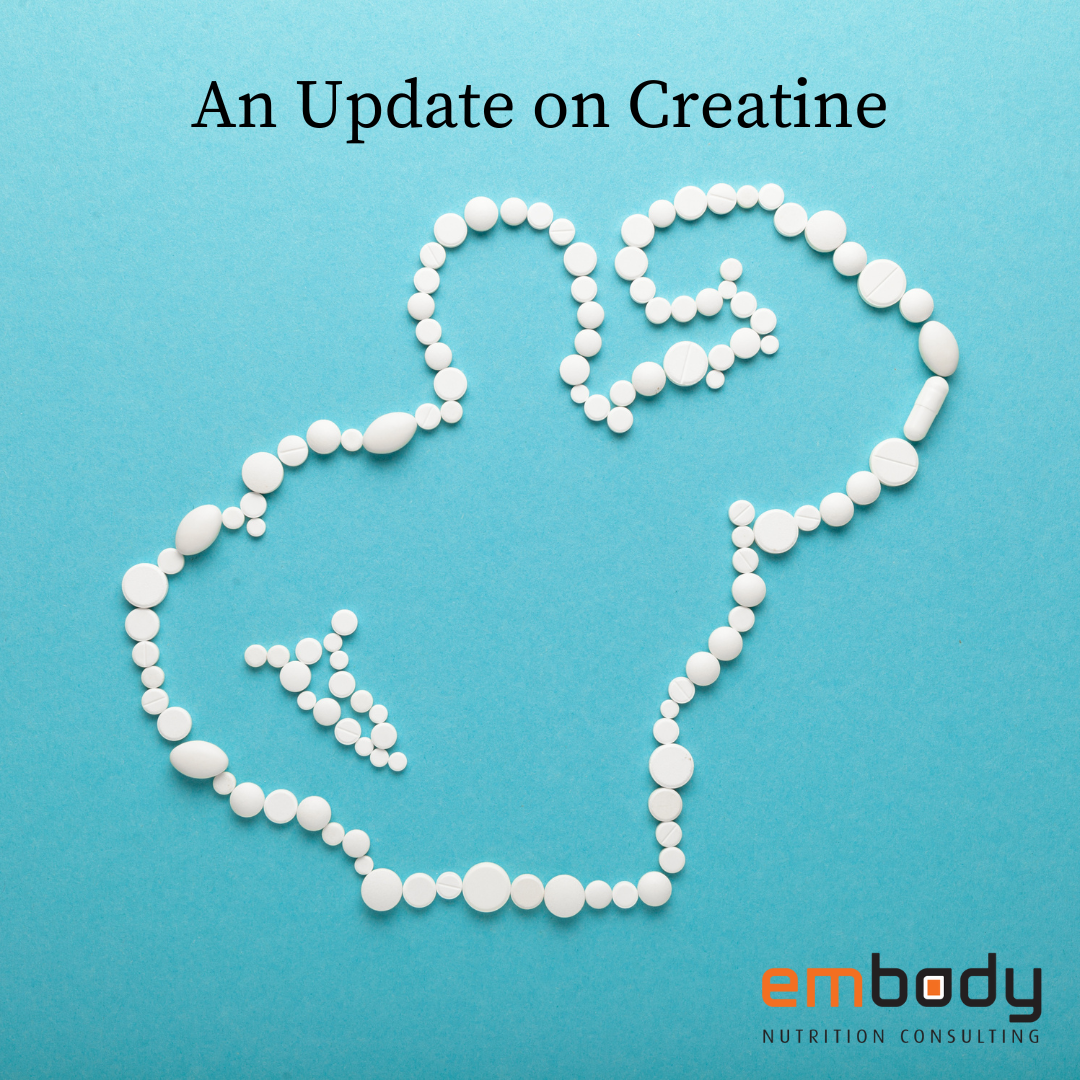Creatine is by the far the number 1 supplement we get asked about in clinic these days. Its use spreads across so many demographics, all the way from athletes to older adults. While it is traditionally known for its performance benefits, it has also been linked to improvements in a number of conditions including brain health! The best news is that it is safe, effective and relatively cheap in the world of supplements.
What is creatine?
Creatine is a natural occurring substance that is made in the liver, kidneys, and pancreas. It is stored in the body’s muscles, where it is used for energy. Creatine can also be found in the form of a dietary supplement, used to aid in increased muscle strength and performance. It is an affordable and highly accessible supplement, purchased as a flavourless powder, so can be taken with water, or mixed into drinks.
What is it used for?
It is mostly used in short-duration, high-intensity resistance exercises, with studies suggesting increases in strength, power, sprint performance, and/or work performed during multiple sets of maximal effort muscle contractions.
What are the benefits?
- Improved output in high intensity intervals (sprinting, weightlifting etc.)
- Improved muscle recovery
- Increased muscle growth
- Maintaining a continuous energy supply to the muscles during exercise
- Improve performance in cognitive tasks and improve brain function
- May help to fight neurological diseases
- May reduce fatigue and tiredness
When to use it?
Timing of creatine ingestion is not crucial for increased results. It is most beneficial when it becomes a regular habit, so it may be advantageous to dedicate a time to take it each day, for example, after every training session.
How much to use?
An effective creatine loading phase begins with 20-25g creatine (0.3g/kg/day) for 5-7 days, followed by 3-5g (0.03g/kg/day) as maintenance after this. The most essential part about supplementing creatine is the build-up in the muscles over a period of time. This process can be accelerated through a loading phase, however, is not necessary as it can also be achieved through a constant maintenance dose.
Who can use it?
Creatine is safe for most people to take, and it is most beneficial for athletes who require short bursts of speed or increased muscle strength. This could include sprinters, weightlifters, or any sports which involve short, high intensity efforts such as soccer, football, or swimming. It is recommended that people with kidney disease, high blood pressure, or liver disease do not take a creatine supplementation, and should speak to a healthcare professional before considering supplementation.
What foods help with creatine absorption?
It is recommended to consume creatine with a source of carbohydrates to maximise its absorption. This could include foods such as oats, quinoa, bread, fruit, or fruit juice.
Are there any side effects of creatine supplementation?
Water retention is a common adverse effect of creatine which may occur in the early stages of supplementation. Body weight may increase by about 2% as a result of the increased muscle water content. However, this will level out once the body has adapted to the change in the maintenance phase. If taken at higher than recommended doses for several months, or combined with other supplements, there have been cases of liver and renal complications occurring. Some side effects of creatine supplementation may include dehydration, muscle cramps, or an upset stomach, although these are very rare.
Cognitive effects of creatine:
Creatine has been found to improve short-term memory, reduce neuronal damage, improve cognitive symptoms, and protect the body against negative effects if the body’s cells lack energy. Creatine has the potential to improve cognitive processing in issues caused by acute stressors (such as exercise or sleep deprivation), or chronic, pathological conditions (such as mild traumatic brain injury, Alzheimer’s disease, or depression).
Creatine’s role in mild traumatic brain injuries (concussions):
Creatine has shown potential to have neuroprotective factors when it is administered before or after a traumatic brain injury. Creatine supplementation may not only help the brain recover from oxidative stress but may also help prevent serious harm following trauma to the brain. As a result of head trauma, the brain suffers from an ‘energy crisis’, which reduces blood flow and oxygen to the brain, however, with creatine supplementation, the cells are able to better regenerate quickly.
Need to know more about what supplements are right for you? Get in touch today to see how we can help.

